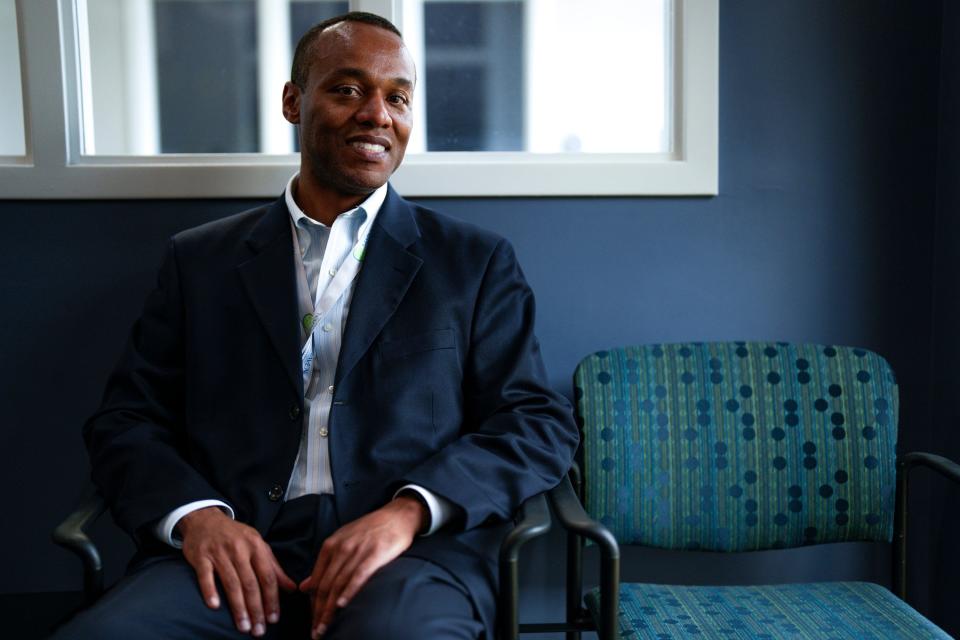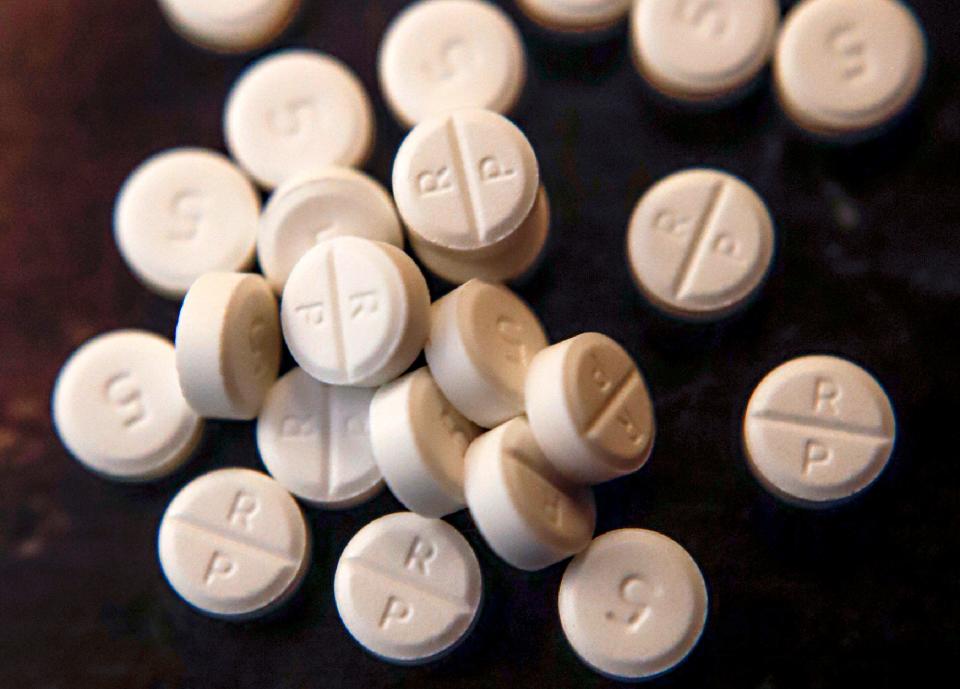Oyauma Garrison: 'We stand on the frontlines of the opioid crisis.' Much work is needed
Oyauma Garrison is president and CEO of Maryhaven, an addiction treatment and behavioral health provider.
My father served his country in Vietnam. He was a hero — and not just to me. But the same war that brought out his greatest strengths in battle also made him vulnerable to a disease that became his toughest enemy. Addiction to heroin haunted him throughout his life.
More: Serving without 'equal opportunity': Vietnam veterans faced racism at home and abroad
I’ve thought of my father frequently since becoming the CEO of Maryhaven last summer.
Maryhaven is now entering its 70th year and, since 1953, we’ve cared for more than 300,000 clients striving to recover from substance use disorders, related mental health concerns such as depressions, and, since 2010, gambling addiction. Last year alone, 13,000 people entered our doors.

We stand on the frontlines of the opioid crisis that continues raging, causing 80,000+ overdose deaths in 2021 alone (up 15% from 2020). We can testify to how the brain disorder called addiction continues wreaking havoc on our families and communities.
More: As the opioid crisis worsens, those responsible must be held accountable
We still have a lot of work to do to achieve an addiction-free world. And there is no one strategy that will get us to that goal. However, several strategies have come home to me as important:
Immediacy
An overdose can begin shutting down critical bodily functions within seconds.
People deluded by the brain fog of addiction may only have brief moments of clarity in which they can decide to seek treatment. As one client reminded us, “if I’d had to wait another half hour for them to process my paperwork, I would have succumbed to self-doubt and left to go back to the streets.”
When either moment occurs, our system has to rapidly respond. Immediacy is why we save lives by making medications like Narcan widely available to resuscitate people from overdose. Immediacy prompted the Alcohol, Drug and Mental Health Board of Franklin County and the Franklin County Commissioners to build a hospital dedicated solely to behavioral health emergency care. Immediacy drove our team to offer walk-in, same day appointments.
Real progress on addiction recovery requires us to move swiftly when either catastrophe or opportunity appear.
Safe, healing environments
On any given day, 145 clients will stay in our residential and detox units as they begin their journey back to health.
I joined our night shift this past year to better understand patients as they begin their recovery journey. The experience reminded me how important is to demonstrate compassion and respect for clients who endure the significant mental and physical pain of withdrawal in order to create a new normal in their lives.
ADAMH CEO: Crisis center will be alternative to 911 in mental health emergency
The brain dysregulation caused by use disorders can happen nearly instantly. The rewiring that has to occur for long-term sobriety takes a lot longer. Avoiding the triggers that lead to relapse, healing from the damages of the disease — like any rehabilitation, recovery takes time and appropriate care.
Sending people right back into the scenarios that led or fed their addiction is a recipe for relapse.
Holistic solutions
As noted, addiction recovery is not as “take a pill for two weeks and you’re good to go.” Neither does it only affect brain health.

People with substance use disorder are twice as likely (or more) to develop significant health issues such as hepatitis, heart disease or other chronic conditions. As noted, they frequently suffer from other behavioral health issues. They lack jobs and housing, are often justice-involved and have lost ties with loved ones. This means that their long-term ability to thrive calls us to treat co-occurring disorders, and offer opportunities to retrain or otherwise prepare for employment, secure safe housing, overcome criminal records and repair damaged relationships.
People who make it to recovery know they can benefit from additional supports and they will work hard to secure them. We’ve had more applicants than we have space available since we opened The Residence at Maryhaven last fall. This residential community, soon to grow from 15 to 30 clients, allows people to continue treatment and counseling in an environment where they can meet all those basic needs and increase the odds of long-term recovery.
Funding
Finally, all of these strategies require support. Funding counts. Medicaid reimbursement rates in Ohio remain the same today as they were in 2018. This is true despite the fact that over those five years, we’ve endured COVID shutdowns, experienced increases in compensation costs to recruit and retain qualified clinicians and, of course, now face overall inflation that has driven up expenses for food, utilities, services and everything related to caregiving.
I remain hopeful and optimistic, but I would be remiss if I didn’t share these realities. If we can continue to provide immediate care, help clients get back to work and life in safer spaces, create a comprehensive approach to meeting short-term needs and ensure that funding is in place to support this work, we will help more people and families escape the shadow of addiction and achieve successful, productive lives.
Oyauma Garrison is president and CEO of Maryhaven, an addiction treatment and behavioral health provider.
This article originally appeared on The Columbus Dispatch: How can Columbus area confront raging opioid crisis| Oyauma Garrison

